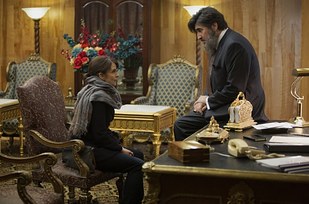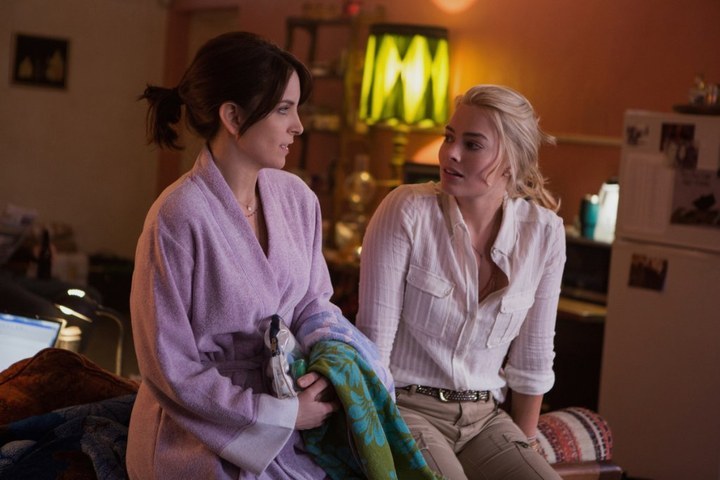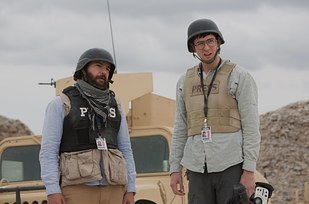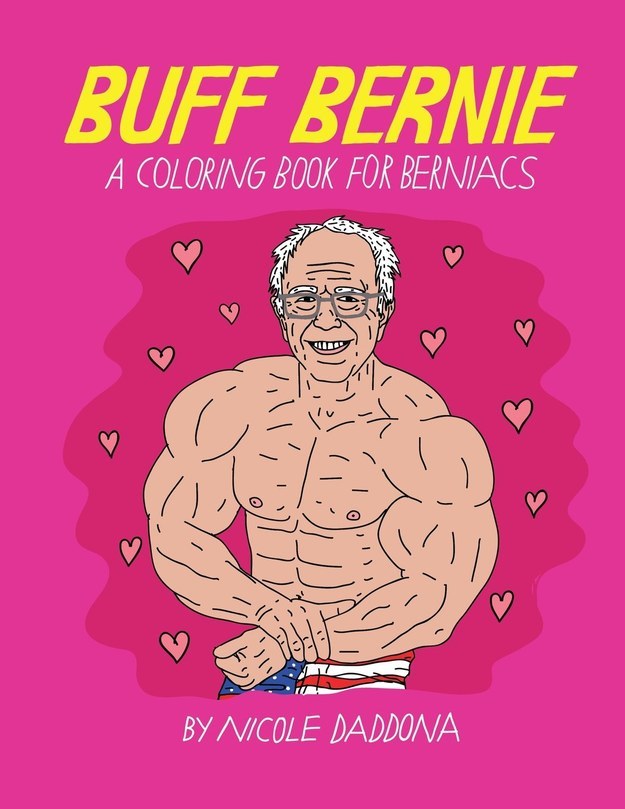
Kim Barker, author of The Taliban Shuffle: Strange Days in Afghanistan and Pakistan
Dimitrios Kambouris / Getty Images
Whiskey Tango Foxtrot is a Tina Fey movie, which is a way of saying that it’s witty, self-effacing, and blind to its own faults. It suffers from the same problems that afflict most films with female protagonists and/or “foil” characters of different ethnicities: It barely passes the Bechdel test and turns a story about a woman struggling to make sense of an alienating job and country into a romantic comedy, suggesting, in a not-so-vaguely insulting way, that the only way to make people interested in a serious subject is if there’s a love story mapped on top of it. The film also casts white actors in the two major Afghan roles, turning one into an exoticized sage and the other into a blundering buffoon.
The film feels like a cocky freshman in a Global Studies seminar trying to crack jokes: When it comes to its own failings, the film’s not smart enough to realize them, and not funny enough to send them up. Looking at the graveyard of bad films that have attempted to deal with the conflicts in Iraq and Afghanistan, it’s clearly difficult to make a film that doesn’t make these mistakes: Both have become ideological crutches — narrative turns that don’t just seem necessary, but natural.
The pity, however, is that the book on which Whiskey Tango Foxtrot is based manages, somewhat miraculously, to indulge neither of the tropes to which the film falls prey. Arguments about whether a movie faithfully translates a book are generally boring and unproductive — movies are capable of providing one kind of story and art form, books another. A text like The Taliban Shuffle: Strange Days in Afghanistan and Pakistan is difficult enough to pull off in the first place: You have a white war correspondent attempting to write about a fiercely religious, contradictory, and ideologically complex country against a backdrop of foreigners acting like high schoolers.
However, the book’s author, Kim Barker, manages to pack a sprawling amount of information and nuance into cogent pockets of text while constantly interrogating her own attitudes, behaviors, and reactions to the world around her. Every page, every description, is another opportunity for Barker to come off as clueless, privileged, or quietly prejudiced. That the book manages to be funny while painting an illuminating picture of the impossibly flawed American intervention in the Middle East is a testament to the depth of Barker’s self-awareness, intelligence, and skill as a writer.

Paramount
But good books do not always make good movies — especially since the transformation from book to screen, at least in Hollywood’s hands, generally subtracts instead of adds nuance. Which is all to say: Making a war movie is hard. Most attempts turn into melodramatic plays between good and evil, flattening the ambiguity that accompanies all military conflicts, let alone ones as inherently ambiguous as any American intervention post–World War II. The most successful films are documentaries, which don’t face the inherent problem of casting actors, and white actors in particular, to play “bad guys” of different races, and high farces: films like Dr. Strangelove, M*A*S*H, and In the Loop that expand and eviscerate the inherent, if hidden, ridiculousness of modern war.
The problem with Whiskey Tango Foxtrot is that in its attempt to combine farce with melodrama — with a little rom-com slotted in, for no comprehensible reason other than the protagonist is a woman — it fails at all three. It’s not a massive failure — the film has its laughs (the sort we’ve now come to associate with Tina Fey), but they’re almost always prompted by mis-translations, jokes about Fey’s supposedly homely appearance, and the buffoonery of Afghans: cheap tricks, not the lacerating humor of effective farce.
There’s an argument that we should celebrate the existence of a war film with a female protagonist — that teen girls will watch the film and see, perhaps for the first time, a woman doing the dangerous and important work of a foreign correspondent. The book provides the film with the potential for self-analysis, especially when it comes to the way that Kim’s “value” as a woman increases when she goes to Afghanistan, where “4s” like her become “10s,” and how that desirability, especially as a white, non-Muslim foreigner, also places her in uncomfortable situations with Afghan men. Then there’s the questions of whether or not to embrace the burka, and of women’s place in society, and sexual desirability as an alternately empowering and infantilizing experience.

Kim (Tina Fey) with best frenemy Tanya Vanderpoel (Margot Robbie)
Paramount
But the film flattens those issues into a single joke — namely, that Fey isn’t as beautiful as her fellow female war correspondent, played by Margot Robbie, and the burka makes her feel “so pretty I don’t even want to vote!” The preposterously blonde and beautiful war correspondent is a trope rife for satire, highlighting the notion that viewers will only tune in to hear about foreign horror if they also want to have sex with the person delivering the news. The film dodges that idea, however, in favor of pitting Robbie’s character — who was created specifically for the purposes of the film — as Fey’s “competition.” Not for men, as it’s been established that they’re not in the same league, but for work, in order to fall in line with the Hollywood narrative that dictates that the primary tension between women should always be a competitive one.
(It’s especially odd, then, that Robbie has said she was “struck by the novelty of two confident women who are friends from the jump, who aren’t competitive or conniving” — when Robbie’s character dissolves their friendship, seemingly without pause, over the pursuit of a job.)
You could argue that Alfred Molina’s over-the-top portrayal of a top political figure is meant to highlight the corruption and hypocrisy that attends Afghan politics. Or that the hackneyed kidnapping of Fey’s love interest — and her exploitation of Marine connections to rescue him — points to just how desperate the military was to gain attention (and, by extension, funding) for the work they were doing in the “forgotten” war. But that context is available only to those who have either read the book or familiarized themselves with the politics of Afghanistan. Without it, the film just feels like an ideological Frankenstein: an assortment of limp, fleeting critiques of the military, the correspondent community, and Afghans alike that, without warning, morphs into an action film. As I left a screening, one woman asked her companion, “I felt like that they misadvertised it. It was supposed to be funny, right?”
Writing for The New Yorker in 1999, David Denby noted that “at its best, Three Kings offers wild bitter farce and some fitful insights into the oddity of the Gulf War. At its worst, it’s an irresponsible, infuriating mess. I’ve seen few movies in which good and bad fought so relentless and exhausting a battle.” Whiskey Tango Foxtrot isn’t as good a movie as David O. Russell’s Three Kings, in part because it lacks the bravery to fully embrace anything like farce — which results in a film that feels apathetic.
As Fey told Town & Country, the film “has nothing to do with what should be done about Afghanistan — it is 100 percent not about that.” Fey is “clearly aware that moviegoers are resistant to films about war and that her fan base is largely female,” the author adds, “though there are guns and explosions and helicopter rides for the guys.” But just because something has been codified into Hollywood logic doesn’t mean that it’s right — or moral.
Which isn’t to say that Whiskey Tango Foxtrot should’ve aimed for preachiness. Good art, dramatic or farcical, can make you care about things you knew little or nothing about. And while it’s easy to make fun of a certain type of moviegoer who watches a film like Spotlight or Citizen Four or Straight Outta Compton and thinks, “I need to go home and read some Wikipedia!” that tendency speaks to the ways in which films can create hunger for information instead of simply — and falsely — satiating it.
Whiskey Tango Foxtrot’s racism and exoticism are not novel. Nor, in the grand, offensive history of Hollywood films, that grave. The film is fairly funny; the acting is highly watchable. It’s neither the worst nor the best of its genre. But perhaps that’s what makes it so quietly infuriating: It’s one of hundreds of films that contribute to the understanding that women must have love interests to have interesting stories, that nonwhite foreigners will always be supporting actors in the narratives Hollywood tells about them, and that films about war should not trouble the viewers who consume them.
You’ll watch it, and you’ll probably never think of it again. But when you’re dealing with a backdrop like Whiskey Tango Foxtrot’s, that doesn’t make the film “entertaining” or “just a movie.” Like Fey’s decision to approve brownface, or her declaration, last year, to “opt out” of the “culture of demanding apologies,” the ability to forget and ignore is a dangerous privilege.

Paramount










There's Now A Shirtless Bernie Sanders Coloring Book